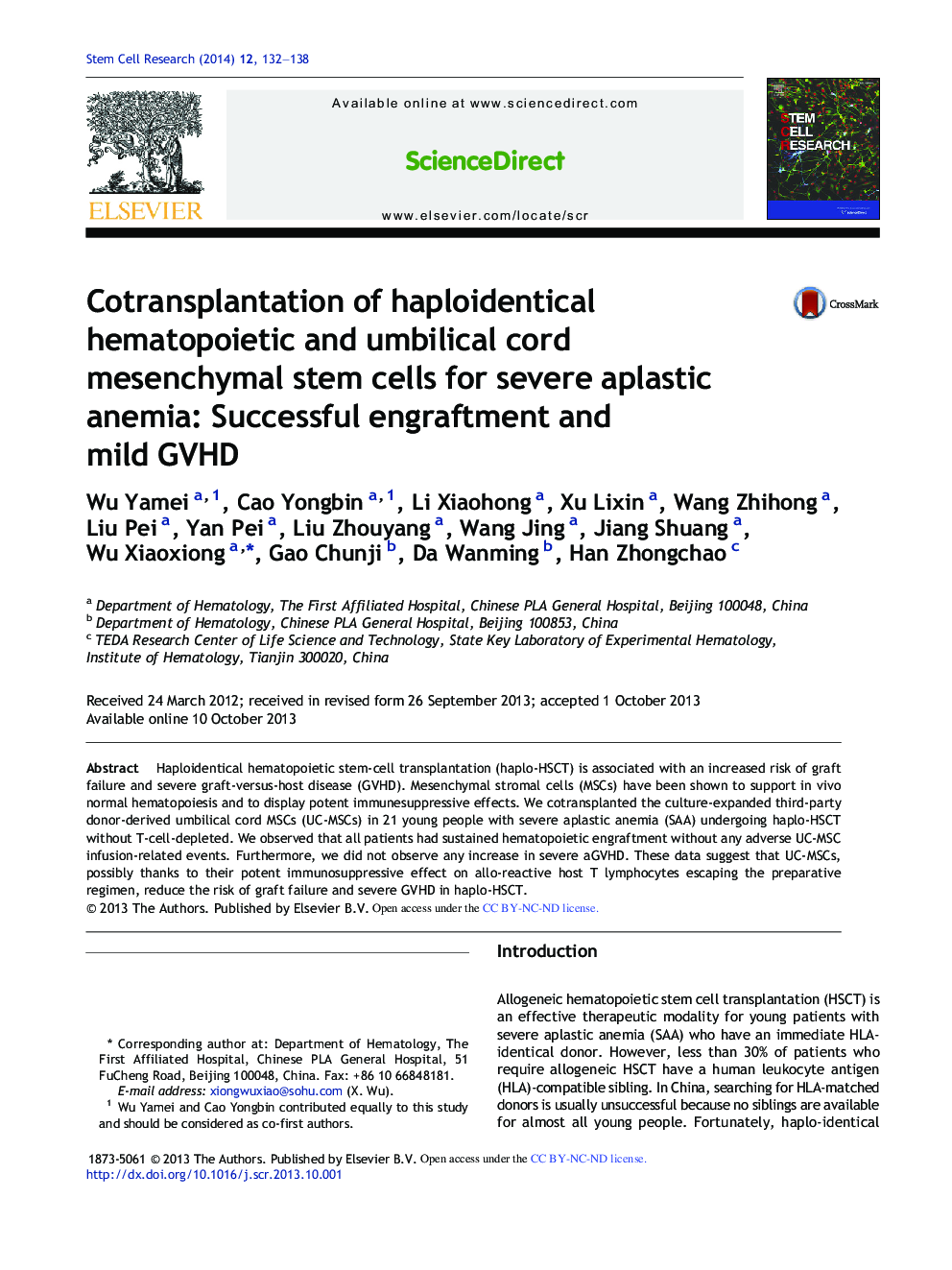| Article ID | Journal | Published Year | Pages | File Type |
|---|---|---|---|---|
| 2094586 | Stem Cell Research | 2014 | 7 Pages |
•In China, searching for HLA-matched donors is usually unsuccessful because no siblings are available for almost all young people.•Mesenchymal stromal cells (MSCs) can support hematopoiesis, enhance the engraftment of HSCs, and reduce the incidence of GVHD following HSCT.•Our data demonstrate that haplo-HSCT combined with UC-MSCs for patients with SAA was safe and feasible.(4) Haplo-HSCT combined with UC-MSCs were effective for the improvement of donor engraftment and the lessening of severe GVHD.
Haploidentical hematopoietic stem-cell transplantation (haplo-HSCT) is associated with an increased risk of graft failure and severe graft-versus-host disease (GVHD). Mesenchymal stromal cells (MSCs) have been shown to support in vivo normal hematopoiesis and to display potent immunesuppressive effects. We cotransplanted the culture-expanded third-party donor-derived umbilical cord MSCs (UC-MSCs) in 21 young people with severe aplastic anemia (SAA) undergoing haplo-HSCT without T-cell-depleted. We observed that all patients had sustained hematopoietic engraftment without any adverse UC-MSC infusion-related events. Furthermore, we did not observe any increase in severe aGVHD. These data suggest that UC-MSCs, possibly thanks to their potent immunosuppressive effect on allo-reactive host T lymphocytes escaping the preparative regimen, reduce the risk of graft failure and severe GVHD in haplo-HSCT.
